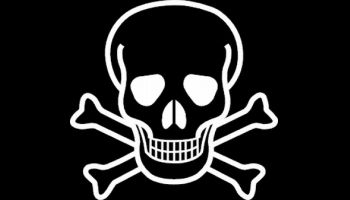US Law To Let Federal Government Shut Pirate Sites

A proposed US federal law would allow the US Department of Justice to shut down sites breaking copyright
A new bill to give the US federal government the power to shut down websites “dedicated to infringing activities” is currently making the rounds in the US Senate. The bill, if passed, would give the government the power to shut down piracy sites.
“Preventing Real Online Threats to Economic Creativity and Theft of Intellectual Property” or PROTECT IP, is a revised version of the controversial “Combating Online Infringement and Counterfeits Act”, or COICA, that was introduced and killed last year.
Revised bill
The revised legislation would allow the US government to obtain court orders to require ISPs, search engines, ad networks and online payment processors to stop supporting sites with pirated content.
The Patriot IP act, which a bipartisan group of 11 senators introduced on 12 May, would allow the government to bring lawsuits against piracy sites and force search engines like Google and Bing from displaying links to those sites in their results pages.
“Both law enforcement and rights holders are currently limited in the remedies available to combat websites dedicated to offering infringing content and products,” said Senator Patrick Leahy of Vermont, the bill’s main sponsor.
Unlike the ill-fated COICA, PROTECT IP defines targeted sites narrowly and would target sites selling or distributing counterfeit goods online, including fake pharmaceuticals, music and movies.
“This bill has a new name, but it’s mostly more of the same,” Sherwin Siy, deputy legal director of Public Knowledge, wrote on the group’s blog. Siy was concerned that the bill, as written, would still give the government the power to take action against sites that aren’t actually hosting pirated content, but are just seen to “enable or facilitate” infringement.
The Justice Department would also be able to get injunctions to force Internet service providers to turn off DNS, or Domain Name System, services to these sites, effectively making them inaccessible in the US The injunctions wouldn’t affect international providers, so the sites would still be accessible abroad.
Domain Name Systems allow users to type in the name instead of the actual IP address of the server to access the site.
Rights holders
The ability to sue the piracy sites wouldn’t be just restricted to the US attorney general, as rights holders would be able to sue to stop such sites from making money. The rights holder can’t sue to block access under the bill. The lawsuit also has to be against the actual owner or operator of the website, not just the domain name.
Domain name registries, registrars, search engines, payment processors and ad networks would be protected if they take action against the offending site.
The Electronic Frontier Foundation said it was “no less dismayed” by the updated bill. The clause that would allow the government to prevent search engines from linking to sites could also impact social-networking sites like Facebook and Twitter or “potentially any service or web pages where a URL might turn up”, the group wrote on its Deeplinks blog.
Law-enforcement requires “necessary tools” to fight “illegal, parasitic websites that steal the hard work of millions and expose innocent users to a spectrum of significant, real-world dangers”, said Philippe Dauman, president and chief executive of Viacom. He claimed more than 140,000 jobs have been lost across the entertainment industry due to online piracy.
A recent report by the Business Software Alliance conservatively estimated that software piracy cost companies $59bn (£36bn) in lost revenue in 2010.
